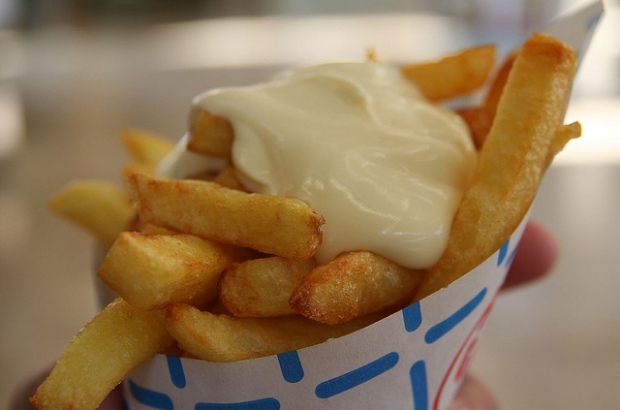- Daily & Weekly newsletters
- Buy & download The Bulletin
- Comment on our articles
War in Ukraine threatens Belgian fries
An imminent shortage of sunflower oil as a result of Russia’s invasion of Ukraine has producers of Belgian fries concerned about their ability to maintain supplies.
“It’s currently all hands on deck with the potato processors,” Christophe Vermeulen, CEO of sector federation Belgapom, told De Morgen.
About 200,000 of the 435,000 tonnes of sunflower oil used each month in Europe originate from Ukraine, with another significant portion coming from Russia. Combined, the two countries represent three quarters of the total European supply.
“At the European level, there is only a few months' supply left,” said Nicholas Courant of the food federation FEVIA.
Alternatives such as rapeseed oil, soya oil or palm oil are also experiencing shortages due to drought in South America or export restrictions in Indonesia, and prices are skyrocketing.
Even if those oils were readily and cheaply available, Courant explained that switching is also a complex logistical operation. Complying with the strict rules on packaging and food safety, or simply testing the taste and texture, is a process that under normal circumstances takes a year.
“Now it would have to be done in a few weeks. That is an impossible mission,” Courant said.
The sector is therefore asking for a more flexible framework that would allow them to pivot, as is being considered in France in the form of a website on which producers can post the adapted recipe of products, without having to reformulate each package.
Shortages could impact other products
Sunflower oil is widely used in the entire food sector, including in the making of chocolate spreads, baby food and sauces. Other products from Ukraine or Russia could also be impacted by the war, like linseed oil, cereals such as wheat and corn and glass packaging.
“There are already companies who fear that they will soon no longer be able to put their products in a jar,” said Courant.
Olivier Joris, who heads the Ukraine task force at employers' organisation VBO, said there are also concerns in the construction and furniture sectors about the supply of wood.
“Don't forget that it's also about exports,” said Joris, who pointed out the importance of Russia as a sales market for fruit growers and beer brewers. “Additionally, the sanctions list can cost companies dearly.”
At the end of last week, chemicals company BASF stopped deliveries to the fertiliser company EuroChem, which had ended up on the European sanctions list because of its Russian owner. The factory, which employs over 400 people, had to stop a number of production processes.
The Belgian government is closely monitoring the situation, said minister of economy Pierre-Yves Dermagne.
He has asked the National Bank to examine the impact in more detail by the end of April. Then, together with the social partners, he will consider what additional measures are needed.




















Comments
A world without fries is not worth living in. At least we still have beer, for now.